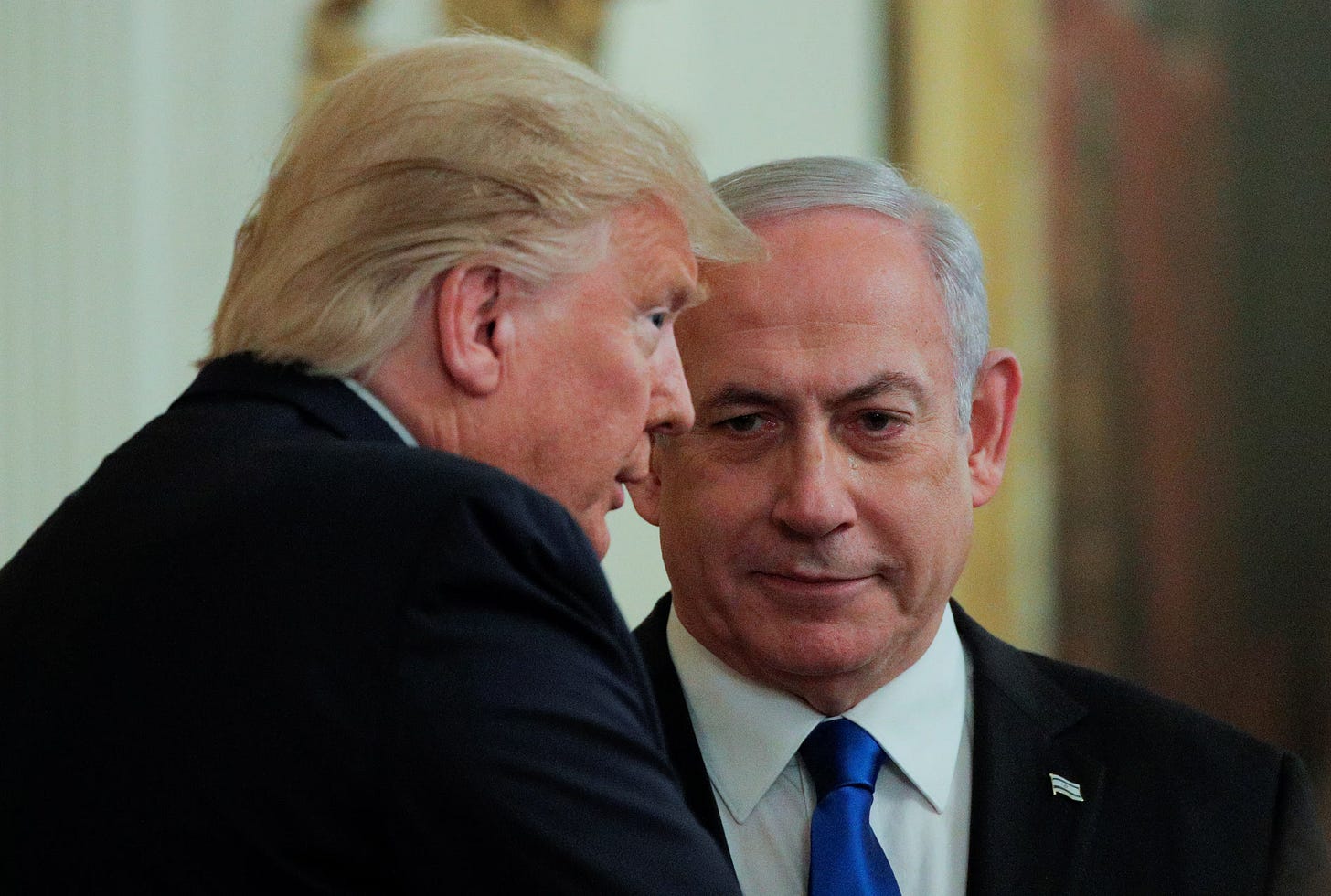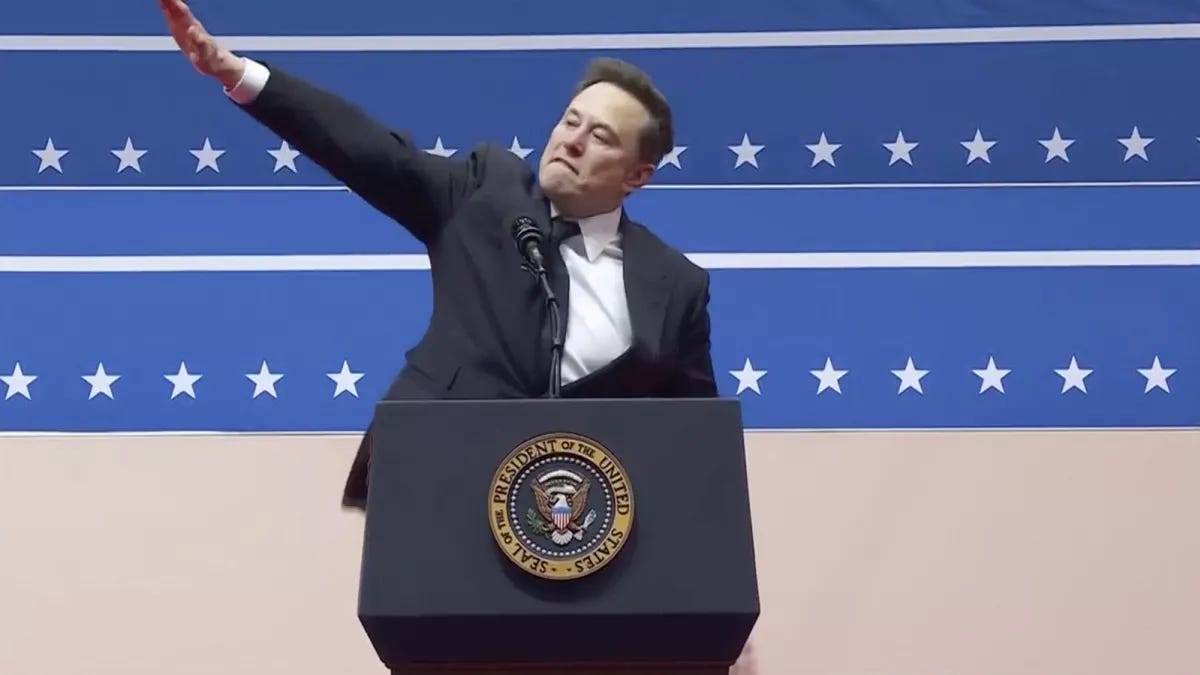Is Trump Going to be Any Better?
Trump has upended decades of US thinking, but how different is he from Biden?
The rubble that is most of Gaza today symbolises something more substantial than a graveyard of children. It represents, in a greater sense, the graveyard of this US-led international order. This order has passed its sell-by date. It no longer offers humanity the kind of leadership it promised in its ascendency. Gaza has proven the callousness with which it treats the lives of others, those outside its civilisational purview. It has shown the duplicity with which it acts, claiming to adhere to magnanimous international laws, only to act in the same malignant manner it censured its forbears.
In this sense, Donald Trump is a response to its decline, perceived or otherwise. He holds a mirror up to this crumbling colossus, and that is what its architects and cheerleaders find indignant. Trump is a symptom of a diseased empire; he is a coarse yet necessary iteration – elected to thwart its inevitable decay. But the questions on many lips is, will Trump be better for Palestine and the Middle East? Is he a warmonger or a peacemaker? Will his Israel policy show deference to everything Netanyahu asks for, as Biden did, or will he use his substantial leverage to curb the insatiable appetite of the apartheid state?
To understand Donald Trump, one must appreciate America’s promise after the Second World War. The global conflagration that had destroyed much of Europe would presage a new kind of world, broadly built upon the contours of a liberal order. A world that would eschew empire and narrow nationalism and replace it with rules and institutions – with restrained use of American power who would act more as a policeman than a malevolent hegemon. Of course, this apple pie and motherhood version of American power was more of an exercise in marketing – even in its early days, it could exercise naked power like all other past empires. But the image, however false, endured. John Ikenberry labelled this marvel the liberal leviathan, an oxymoron in many ways. Thomas Hobbes’ leviathan was the mythical biblical sea creature that devoured all. By appending enormous American power with ‘liberal’, this order would be checked by ideological restraint. America was reluctant, sensitive and self-correcting – we were told.
The success of this liberal order was realised after the fall of the Berlin Wall and the end of the Cold War. According to a victor’s narrative, America patiently outperformed the Soviet Union. Free market economies and liberal democracies had prevailed as the only enduring system of economic and political governance, as Francis Fukuyama would announce. In his End of History, he sought to make sense of this moment by appealing to US exceptionalism and, in the process, captured the zeitgeist. Fukuyama became the high priest of this repackaged manifest destiny, the belief that it was America’s fate to build and lead the West. The architects of this new order were set to work on a world that could no longer resist the lure of capitalism and liberal democracy. Chicago School economists were dispatched to Russia and Eastern Europe. US-led institutions like the World Trade Organisation would expand to accommodate ‘lesser’ nations like China – who would be subordinated to this new globalised paradise.
It is as if we are living in a Philip K. Dick novel. History was meant to have ended by now. Fukuyama had promised a liberal nirvana the world over. Young men would not be queuing up to enrol in wars but instead be emasculated by McDonald’s burgers and overpriced coffee. Why has the world become this liberal tragedy? It has a lot to do with liberalism and its problematic impulses, something I address elsewhere. It was Thomas Friedman, no stranger to hyperbole, who had declared without a hint of irony, that no two countries that had a McDonald’s in it would go to war; he called it the Golden Arches Theory of Conflict Resolution – the idea that capitalism produces peace the world over. Of course, not if you are a child ‘working’ in slave labour conditions, mining for cobalt in Congo to serve Western consumers of regular smartphone upgrades, surrounded by armed militias. Westerners overlook these poor souls. In his or her world, capitalism looks more like a means to promulgate slavery by other means. However, the snake oil salesmen persist; Robert Kagan continues to peddle the myth that American power is positive, for it prevents the international order from spiralling into a jungle. Liberal globalists of both left and right persuasion have always found it difficult to read the room.
Trump is a denunciation of this policy consensus. He reflects a groundswell of Americans who no longer believe this order has served them well. This does not mean Trump is some form of egalitarian saviour, ready to put right the wrongs of empire. Trump represents in many ways an ugly, nativist underbelly that has always been present and that, in post-Cold War heydays, would sit comfortably with this liberal order. But he does represent a post-liberalism – a departure from the consensus that powered America at home and abroad. In 2020, when he narrowly lost to Joe Biden, I argued he most appropriately represented the values of many Americans who have grown tired of world-building. He wants to make his presidency a transformational one, where the holy cows of US domestic and foreign policy are upended, slaughtered even, replaced by a version that simultaneously is sceptical of war but readily uses hard power as a tool for America’s naked gains.
Trump’s America no longer believes in the primacy of free markets, a pillar of global capitalism. He has already declared his love for tariffs, ‘the most beautiful word in the dictionary today… more beautiful than love.’ Countries that refuse to show suzerainty to America and pay their dues will be prevented from accessing its most lucrative market. He believes globalisation has harmed US workers and has urged US companies to return production to America despite the costs that would incur. Why, he previously exclaimed, did America help China prosper, facilitating its rise? He blames the Clinton administration’s policies towards embracing the emerging country and its economic ambitions. The answer, of course, is liberal exuberance. The Chicago boys imagined that as China became capitalist, it would settle for liberal democracy – another Germany or Japan.
Trump argues that America has recklessly conducted useless wars, primarily in the Middle East, that sucked the country's resources and prevented investment in crucial infrastructure upgrades. At the same time, it opened up space for competitors to rise. He blames this foreign policy thinking on a liberal groupthink that moved the US from thinking about its self-interest and instead embraced lofty values of democracy promotion and human rights.
His new administration reflects his America First agenda more closely. With control of Congress and the Supreme Court, he can build America in his image, albeit with few significant constitutional restraints. This does not mean there are no contrary impulses around him. Elon Musk, for example, built his tech empire on skilled migrant labour – something the America Firsters, many of whom want a culturally dominant white America, find problematic. His backing for extending H-1B visas, which fast-track the entry of high-end migrants, solicited anger. Since his scolding by the MAGA mob, he has had to go full nazi to reiterate his America First credentials and remain relevant to the President.
Some in the administration still want to escalate a conflict with Iran—something Trump finds problematic unless it can be done without a protracted war. Iran hawks like General Keith Kellogg, who handles Ukraine policy, would like to foster regime change in the country, meeting opposition leaders in Europe recently. These impulses are contained within the administration, but what is clearer this time is that Trump has greater authority and the means to pursue his own agenda.
This agenda is primarily, at least internationally, focused on China's rise and controlling China's ability to carve out an alternative power block for itself. This administration realises China can undermine US power and wants to clear the decks to focus on this global challenge. Ending the Ukraine conflict fits within this agenda. Bringing Russia closer to the US will undermine Chinese ambitions – an inversion of Kissinger’s Cold War policy of triangular diplomacy where China was wrenched away from the Soviet Union.
Israel, of course, remains a bipartisan concern, as the Zionist state represents an important colony of the West in the heart of the Middle East. But Trump is weary of focussing exclusively upon the region and is happy to pursue his previous policy of enabling the strong men of the Arab countries to normalise with Israel. Palestinians do not matter; he has already declared his intention to coerce Jordan and Egypt to accept refugees, ‘clean out Gaza’ – consolidating Israeli control of Jerusalem and accepting, as a matter of course, the expansion of settler activity in the West Bank. This is all fine and reinforces his commitment to Israel, but it mustn’t dominate US foreign policy thinking. In this sense, Netanyahu will be let loose and restrained.
At home, Trump has what can only be described as an illiberal agenda. Turning back the tide of ‘woke’ sentiment that he and his supporters feel has weakened the US. The army can no longer pursue diversity programmes, and transgender troops are banned from the military. Education curricula must also be freed from socially liberal dogma. His pardon of over 1500 January 6th insurrectionists, some of whom belong to hardened white power movements like the Proud Boys, is an endorsement of a horrid agenda of cultural supremacy. But this reflects the nativist impulse that drives much of non-metropolitan America.
The Trump presidency will be a whirlwind. He aims to recreate America and thwart decline. Many overly emphasise his transactional style and tough talk as a negotiating tactic. This may be true, but it would equally be wrong to claim there is not an ambitious agenda here. Trump is the first of many presidents to upend this failing liberal consensus. Unlike his first term, the ‘resistance’ looks far more placid, reflecting in many ways the success of this ideological turn. Biden today appears more like the aberration. Time will ultimately tell, but liberal America and the liberal world order seem to have been a brief project, replaced by a coarse, supremacist and unpredictable United States. It is, in the sense, meaningless to ask who will be better.






A great thought provoking article, thanks.
Various academics have pointed out that the world has shifted from of a period of unusual stability into what it normally is, chaos and unpredicability. They say we should not expect to return to this lost predictability for the foreseeable future.
Your article suggests as such. The liberal order is over.
My preference/hope is for any modicum of stability where people can build confidence, respect and trust in one another, no matter how small. No doubt new centers of this stability will arise. Lets hope they grow in strength and take greater and greater hold.
Concluding, it seems as though Trump will give Netanyahu a blank cheque on the West Bank. Biden, despite his many short comings, would not have been that cavalier
In terms of his policy for the Middle East it will not change. He has already made deals with Israel in terms of the West Bank. It will be no different from Biden